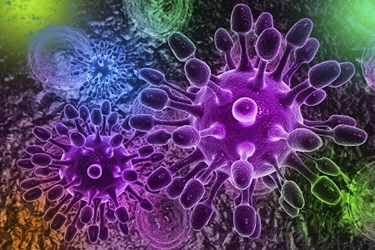Researchers: Vegetable Oil More Effective Than Antibiotics Against Gastric Bacteria

Researchers at the University of California, San Diego have developed a new treatment for gastric bacterial infections, a major cause of peptic ulcers and gastric cancer. This new treatment is derived almost exclusively from vegetable oil and provides an alternative and less toxic treatment for antibiotic resistant infections.
The bacterium Heliobacter pylori (H.pylori) is a strain of bacteria most strongly associated with the development of ulcers and cancer, and has recently been found to show resistance to antibiotics commonly used to treat it.
The new treatment, called LipoLLA, is linolenic acid (a major ingredient in vegetable oil) encapsulated and protected by liposomes to avoid degradation in stomach acid. The therapy works by attaching itself to the bacterial membrane, disrupting it and therefore killing the bacteria.
The laboratory results, in which LipoLLA was tested on mice, found that the treatment was even more effective than antibiotics in killing H. pylori.
Liangfang Zhang, professor and researcher at UC San Diego, explained the importance of the discovery. “Current H. Pylori treatments are facing a major challenge — antibiotic resistance. Our goal was to develop a nanotherapeutic that can tolerate the harsh gastric environment, kill H.pylori, and avoid resistance.”
UT San Diego explains the advantages of the treatment. “Because the therapeutic agent is a natural compound found in common vegetable oils, such treatment is expected to be cost-effective compared with existing antibiotic-based anti-H. pylori therapeutics.”
Researchers say that fatty acids such as this one could potentially be used to fight and kill other infection causing bacteria and reports great potential for future research.
Zhang told UC San Diego News how his team plans to proceed. “This is the first step to verify that we can make this therapeutic nanoparticle and demonstrate that it works to reduce H.pylori colonization. We’re not working to further enhance the particle, making it more stable and more effective.”
The report was co-authored by Zhang and Marygorret Obonyo, and their results were published in Proceedings of the National Academy of Sciences.
